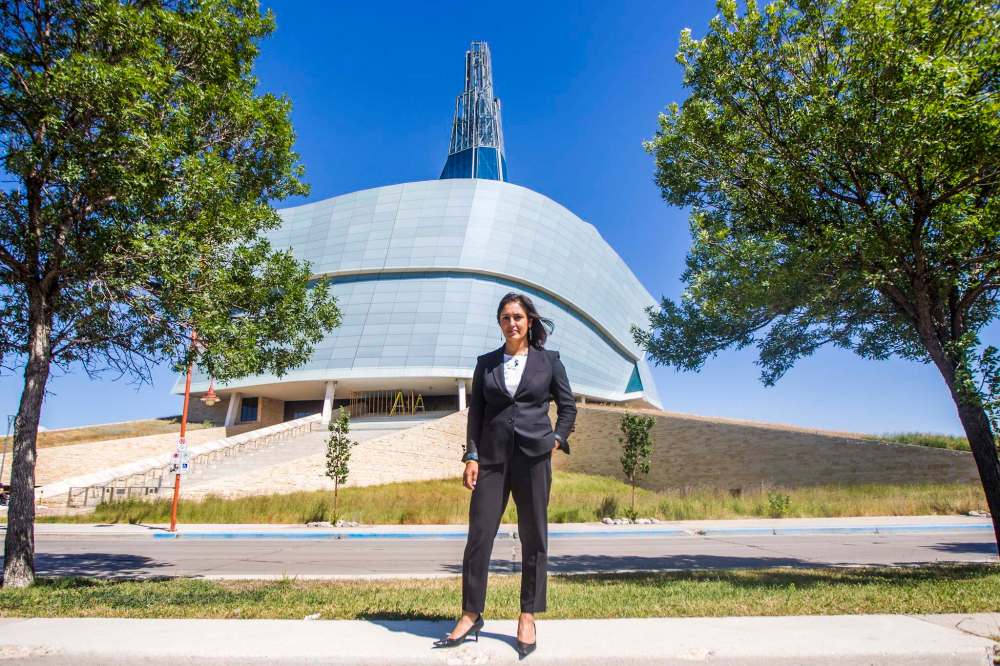Human rights museum responds to reopening backlash
Advertisement
Read this article for free:
or
Already have an account? Log in here »
To continue reading, please subscribe:
Monthly Digital Subscription
$0 for the first 4 weeks*
- Enjoy unlimited reading on winnipegfreepress.com
- Read the E-Edition, our digital replica newspaper
- Access News Break, our award-winning app
- Play interactive puzzles
*No charge for 4 weeks then price increases to the regular rate of $19.00 plus GST every four weeks. Offer available to new and qualified returning subscribers only. Cancel any time.
Monthly Digital Subscription
$4.75/week*
- Enjoy unlimited reading on winnipegfreepress.com
- Read the E-Edition, our digital replica newspaper
- Access News Break, our award-winning app
- Play interactive puzzles
*Billed as $19 plus GST every four weeks. Cancel any time.
To continue reading, please subscribe:
Add Free Press access to your Brandon Sun subscription for only an additional
$1 for the first 4 weeks*
*Your next subscription payment will increase by $1.00 and you will be charged $16.99 plus GST for four weeks. After four weeks, your payment will increase to $23.99 plus GST every four weeks.
Read unlimited articles for free today:
or
Already have an account? Log in here »
Hey there, time traveller!
This article was published 29/07/2021 (1596 days ago), so information in it may no longer be current.
The Canadian Museum for Human Rights reopened to fully vaccinated members of the public this week, drawing cries of discrimination from those who have chosen not to get vaccinated against COVID-19.
While the some of the backlash has been “disturbing,” museum CEO Isha Khan said the conflict has opened room for a conversation about human rights during the pandemic.
“We made the decision to open in compliance with that law, really because we’re a public institution and we saw it as our responsibility to open as soon as we could to the public — within the restrictions as they currently are,” Khan said Thursday.

“But it’s really important to us, as the Canadian Museum for Human Rights we have a mandate for human rights education, that we’re trying to ground the conversation in human rights principles.”
The museum received hundreds of comments on a July 15 Facebook post announcing the museum would reopen in accordance with public health orders — which mandate that museums and art galleries only open to those who can prove they are fully vaccinated, and children under 12 who visit with a vaccinated adult.
Several commenters called the museum’s decision “segregation,” “discrimination,” or “hypocritical,” and compared the opening strategy to that of an authoritarian regime.
Khan said several comments used racist, sexist and violent language. The comments were deleted. Khan said the museum also responded to emails, phone calls, and even an in-person protest on opening day.
Khan said she was “disappointed and somewhat disturbed” by the tone, but insisted on engaging in respectful dialogue about human rights and discrimination with those open to conversation.
“The reaction that this doesn’t make sense, or the anger and fear around vaccination programs, the hesitancy, I can see where it comes from,” said Khan.
“It’s really important to us, as the Canadian Museum for Human Rights we have a mandate for human rights education, that we’re trying to ground the conversation in human rights principles.”–Isha Khan
“There is room for some thoughtful dialogue about these issues, about how people feel when their rights are impacted and what feels like a human rights infringement and to question whether it is or not, but it has to be a respectful dialogue.”
The museum released a statement Tuesday outlining the reasoning behind the choice to reopen under public health rules, while highlighting the definition of discrimination for those concerned their exclusion amounted to an infringement upon human rights.
“Discrimination is a concept that is defined in law,” Khan explained, referencing the protections outlined in Canada’s Charter of Rights and Freedoms.
“It’s based on the idea that we’re born free and equal in dignity and in rights, but discrimination is specifically defined in those laws as treating people differently on the basis of these characteristics that really go to the root of who we are as a human being.”
While choosing not to be vaccinated does not amount to a core human characteristic, and thereby does not meet the legal threshold for discrimination, Khan said she understands the anger and frustration some members of the public feel.
“There are very real human rights issues as a result of this pandemic; access to vaccines, rates of infection and hospitalization among those who are socially disadvantaged or from historically marginalized groups.
“There is room for some thoughtful dialogue about these issues, about how people feel when their rights are impacted and what feels like a human rights infringement and to question whether it is or not, but it has to be a respectful dialogue.” –Isha Khan
“There are so many issues that we should focus on related to this pandemic that raise very real human rights issues about health, that I think we have to be careful not to conflate this issue about temporary restrictions on access,” said Khan.
julia-simone.rutgers@freepress.mb.ca
Twitter: @jsrutgers

Julia-Simone Rutgers is a climate reporter with a focus on environmental issues in Manitoba. Her position is part of a three-year partnership between the Winnipeg Free Press and The Narwhal, funded by the Winnipeg Foundation.
Our newsroom depends on a growing audience of readers to power our journalism. If you are not a paid reader, please consider becoming a subscriber.
Our newsroom depends on its audience of readers to power our journalism. Thank you for your support.





